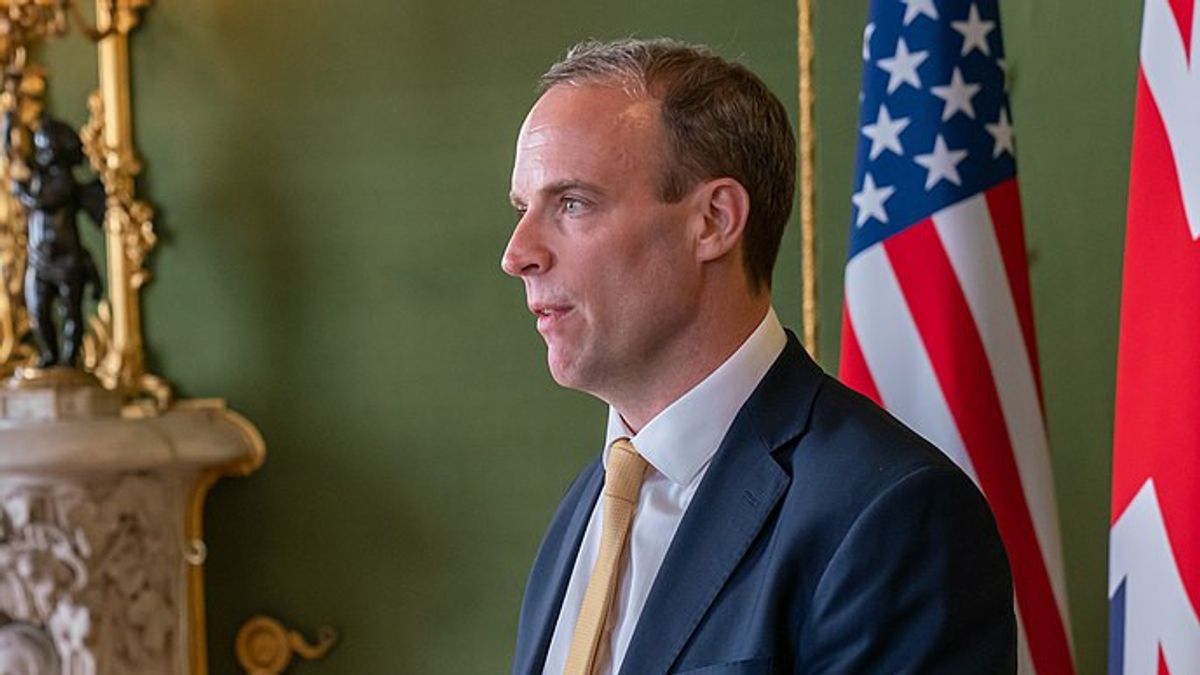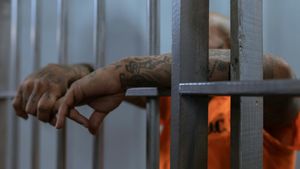JAKARTA - The British government will fine a company that conceals its connection with Xinjiang, China. Xinjiang is an area where ethnic Uighurs and other minorities are allegedly forced to work and human rights are violated.
Quoting CNN, Wednesday, January 13, 2021, British Foreign Minister Dominic Raab immediately announced the new steps. According to the Foreign Ministry, the new rules are designed to ensure all British organizations do not become involved in or take advantage of human rights abuses in Xinjiang.
The British government will also review which British products can be exported to Xinjiang. They will also issue new guidelines that outline the specific risks faced by companies with connections to Xinjiang.
The United States Department of State estimates that about two million Uighurs, as well as members of other Muslim minority groups, are in concentration camps in Xinjiang. China defends a crackdown in Xinjiang is necessary to tackle extremism and terrorism. The Bamboo Curtain country also claims that the facility is a voluntary "training center" where people learn vocational skills, Chinese language and law.
"The evidence for the scale and severity of the human rights violations committed in Xinjiang against Uighur Muslims is now immense," Raab told lawmakers. He said the new measures were intended to "send a clear message that violations of human rights are unacceptable, and to protect British businesses and public bodies from their involvement or contact with them."
Raab also called for the United Nations to have access to the Xinjiang region to verify allegations of forced labor and other human rights violations. Meanwhile the US has taken its own steps to limit imports from Xinjiang.
Last month, the Trump administration announced it would block cotton imports from Xinjiang. The move is Trump's latest restriction on the region.
Growing Uyghur populationAs reported by VOI previously, Uighur population growth in Xinjiang has reached 25 percent in four years. The growth of the Uighur ethnic minority far outpaced the growth of the Han majority during the 2010-2018 period.
Lecturer at the Head of the Department of Politics and Public Administration at Xinjiang University, Prof. Lin Fangfei, said that in 2018 the Uighurs in China's westernmost region had increased by 1,271, up 25.04 percent compared to growth in 2010.
Meanwhile, Han ethnicity in Xinjiang in 2018 only increased by 900 people, or an increase of two percent compared to 2010. Another Muslim ethnic minority in Xinjiang, Kirgiz, which lives in Kizilsu Prefecture, in 2020 its growth actually reached 10.5 percent. "So the growth is not only 1.05 percent, but 10.5 percent," said Fangfei.
The government of the Xinjiang Autonomous Region offers assistance to its citizens living abroad. This is so they can find out the condition of their family in the westernmost region of China.
The English, Chinese, Japanese, Arabic, and French versions are automatically generated by the AI. So there may still be inaccuracies in translating, please always see Indonesian as our main language. (system supported by DigitalSiber.id)













